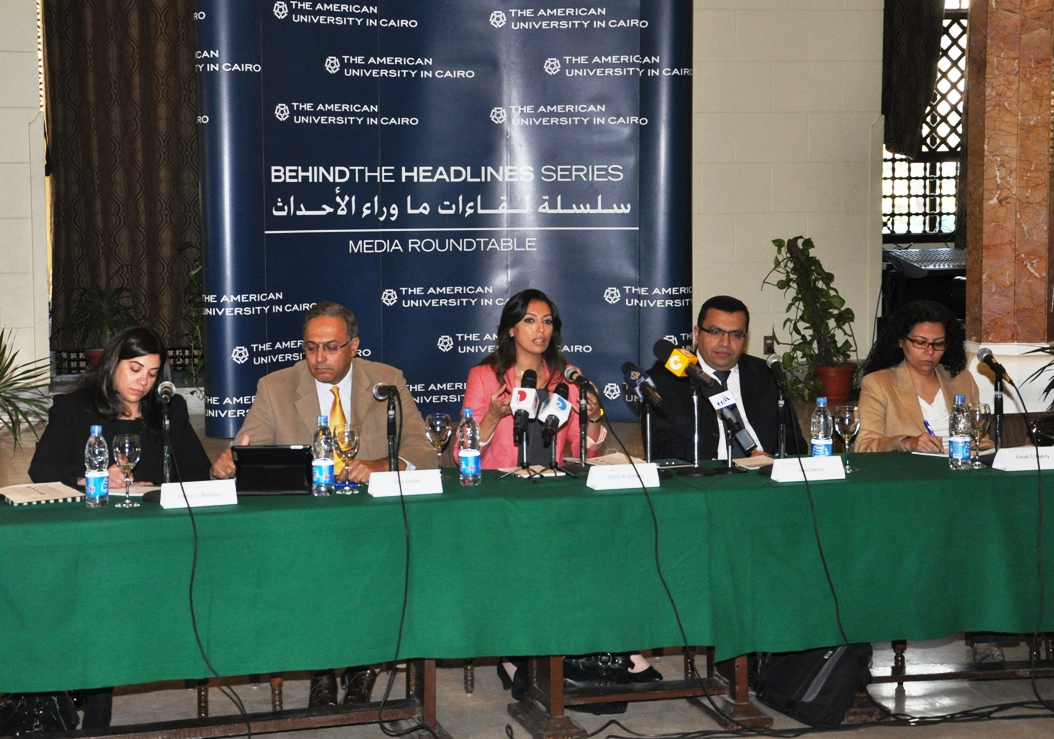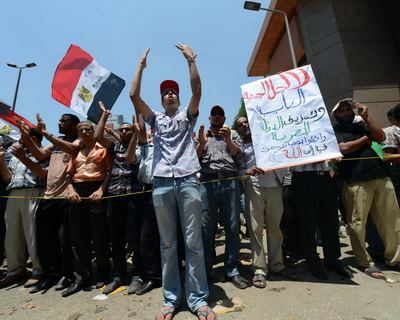CAIRO: The state coroner turned South Cairo Criminal Court on its head Wednesday with a testimony which denied the existence of any evidence proving that a 19-year-old charged with the murder of two university students last November in Al-Nada compound in Sixth of October City, has committed the grisly crime.
During the cross examination, lawyer Ahmed Gomaa, representing the accused Mahmoud Sayed Abdel Hafez Essawy, questioned coroner Ayman Hussein Mohamed, who had conducted the autopsy on the two victims Heba El-Akkad and Nadine Khaled and also examined Essawy.
Mohamed said that there was no evidence on the two dead bodies suggesting that Essawy was at the scene of the crime, nor were there any signs of resistance by the late victims on the body of the accused.
The only injury on Essawy noted by the coroner was a cut in his right palm, which Essawy said was a knife accident.
The coroner said it was only a superficial cut, explaining the absence of Essawy’s blood traces in the murder scene or on the victims’ bodies.
The coroner conceded that a sharp metal object could have been used as the murder weapon but doubted that the victims could have died as a result of one stab as Essawy had confessed to the prosecution during the initial interrogation. He cited inconsistencies between the forensic evidence of how they were killed and the confessions extracted from the defendant.
The coroner further stated that there were “simple bruises on Essawy s legs which appeared after the murder was committed and could have been caused by beating.
Gomaa asked the court to reexamine Essawy’s undershirt, which the persecution claimed was retrieved from his home covered in the victims’ blood and demanded that the coroner investigate whether the blood was put there intentionally.
He also demanded the cross examination of General Mahmoud Al-Garhy, the Al-Nada compound resident who was the first to enter the crime scene, and Mohamed Al-Moslemany, the compound’s security director.
The court adjourned the trial until March 7 and agreed to all of Gomaa’s requests.
The hearing was conducted under strict security measures as there were more than six high-ranking police officials inside the courtroom.
No TV cameras or regular cameras were allowed inside the court session and, unlike last Saturday’s hearing, none of the victims’ families were present, while around six of Essawy’s relatives attended.
Essawy had pleaded not guilty to the murders and said that the confessions were extracted from him under duress, which Essam Shiha, one of the victims’ lawyers, completely rejects.
“He confessed without any pressure from anyone, but it’s normal for him to retract his statements now that he’s facing the death penalty, Shiha told Daily News Egypt.
Confident that he has a solid case, Shiha said he insisted that Essawy be charged under Article 234 of the penal code, which stipulates the death penalty for premeditated murder.
Gomaa, however, was equally confident of Essawy’s innocence. He has taken on this case pro bono.

